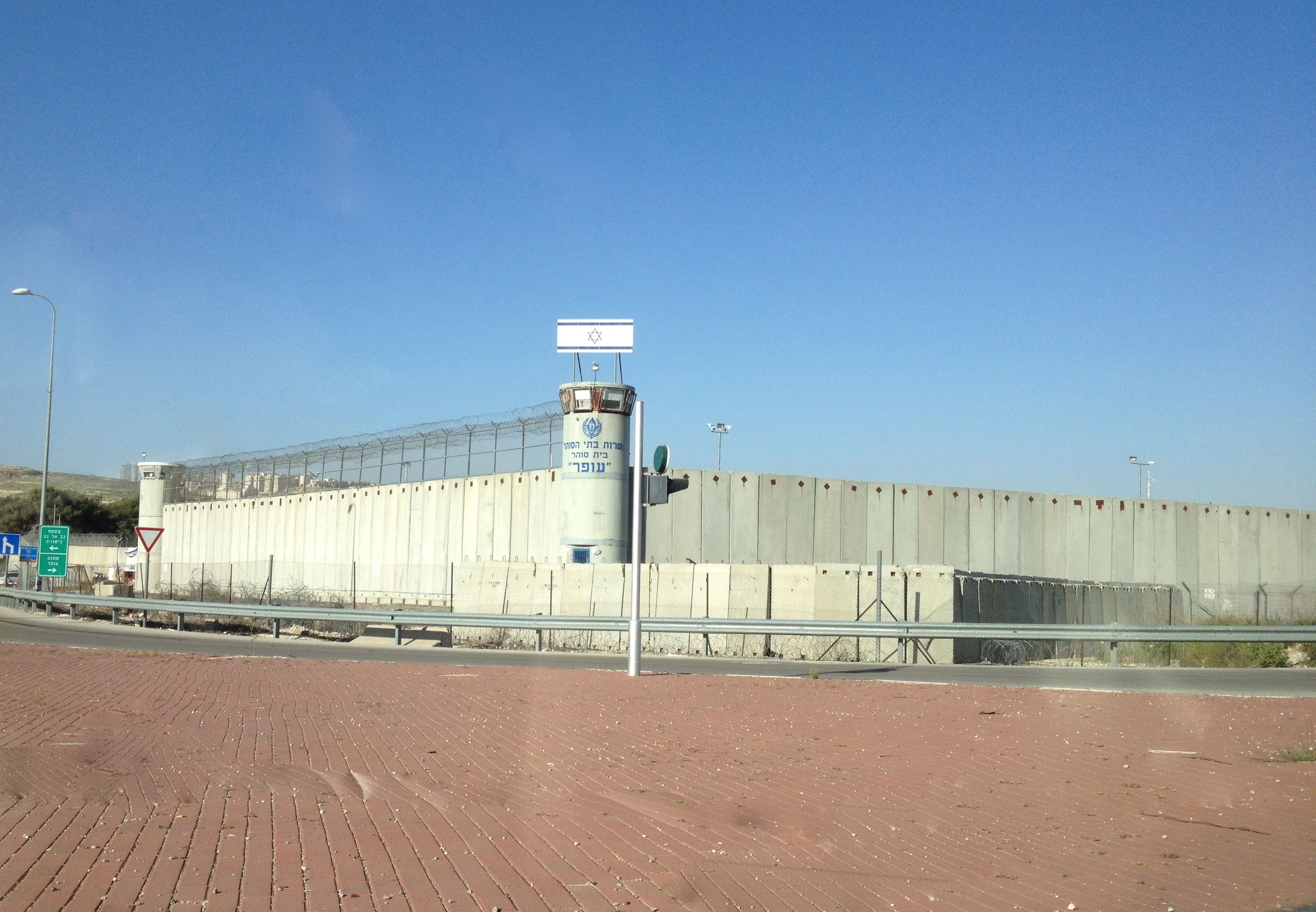Palestinian political prisoners are in their fourth week of a hunger strike. What little media coverage there is has not answered the fundamental questions of “Who are these prisoners?” and “Why are they on a hunger strike?”
An estimated 6500 Palestinian political prisoners are currently held in Israeli prisons and detention camps. This is a small fraction of all Palestinian women and men who spent time in Israeli prisons and detention camps since 1967, estimated at 90,000 people (close to 40% of the male population of the 1967 occupied territories). Among existing political prisoners, there are 500 in administrative detention; 300 child prisoners; 61 female prisoners, and 13 Palestinian Legislative Council members. Detainees and prisoners — current and previous — include activists, journalists, human rights defenders, academics, political figures, bystanders and family members of prisoners.
These prisoners began their hunger strike on April 16, and are in in prison for having taken part in resisting Israeli colonial occupation. Some resisted using military means. Others, especially children, were imprisoned for throwing stones at Israeli occupation forces, while various others simply for participating in peaceful protests against Israeli atrocities in the occupied territories.
Hunger strike as the last resort
The struggle of Palestinians against Israeli colonial occupation does not end with their imprisonment or detention. If anything, their struggle grows stronger despite imprisonment, albeit by taking different forms. In my book Captive Revolution: Palestinian Women’s anti-Colonial Struggle Within the Israeli Prison System, I provide a detailed description of Israel’s infringement on international humanitarian law, by its use of physical, psychological and sexual torture against Palestinian prisoners. While some of these punitive measures, especially rape, have eased up due to local and international pressure, Israel continues to treat political prisoners inhumanly.
The demands of the political prisoners are not new. Some of these demands, including family visits, humane treatment, proper medical care and an end to administrative detention, have been won by the prisoners in the past. However, the Israeli state has lately taken away gains, leaving them with the hunger strike as the only resort to get back their human rights and dignity.
More solidarity, more Israeli torture
In solidarity with the political prisoners’ hunger strike, on April 28 another 1200 Palestinian political detainees, from Ofer prison, refused to eat and returned their food back to the prison officials. Solidarity with, and support for the detainees is expressed in the occupied territories through protest camps, demonstrations and other forms of peaceful activities. Various acts of support including individual and collective hunger strikes are also taking place in various countries, including Lebanon and Tunisia. On May 6, Gregory 111 Laham, Patriarch of Antioch and all the East, joined the hunger strike in solidarity with the Palestinian prisoners.
The most well-known of the political prisoners, Marwan Barghouti, sent the following letter from his cell in Hadarim prison, which was published in the New York Times on April 16. Barghouti, a member of the Palestinian Legislative Council and of Fatah Central Committee, explains, “Hunger striking is the most peaceful form of resistance available. It inflicts pain solely on those who participate and on their loved ones, in the hopes that their empty stomachs and their sacrifice will help the message resonate beyond the confines of their dark cells.”
Although the main demand of Palestinian political prisoners has been the abolition of Israel’s arbitrary administrative detention — an act which places people in prison with no charge and for unlimited time — this time the strikers are demanding basic human rights, asking for family visitations, rejecting Israel’s medical negligence and against their inhumane and degrading treatment.
The power of the hunger strike movement and the exposure and solidarity it has and continues to receive has angered the Israelis. On April 28, Israeli prison forces raided the prisons of Ramon and Asqalan (Ashkelon) and beat all prisoners who refused to be searched. It raided other prisons and placed several prisoners in solitary confinement. Israeli forces also raided many solidarity camps in the West Bank and used live ammunitions against the peaceful protesters there.
All such acts of aggression were carried out by the Israelis in order to break the spirit of Palestinians in their resistance to the state’s settler colonial and occupation policies. Yet, as Barghouti wrote in his letter, speaking on behalf of all the strikers: “Our chains will be broken before we are, because it is human nature to heed the call for freedom regardless of the cost.”
This article should be considered as a call for solidarity from Canadians to Palestinian political prisoners fighting for human rights and dignity.
Image: Wikimedia Commons
Like this article? Please chip in to keep stories like these coming.




